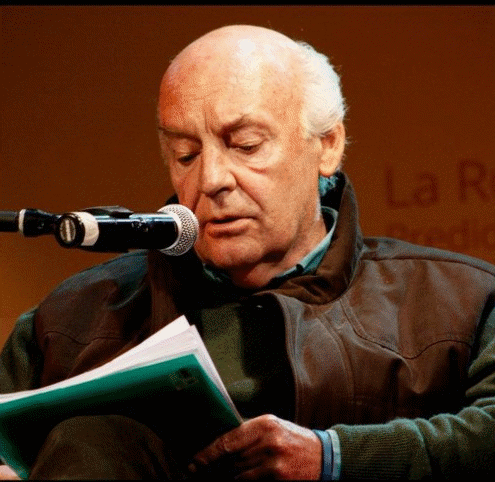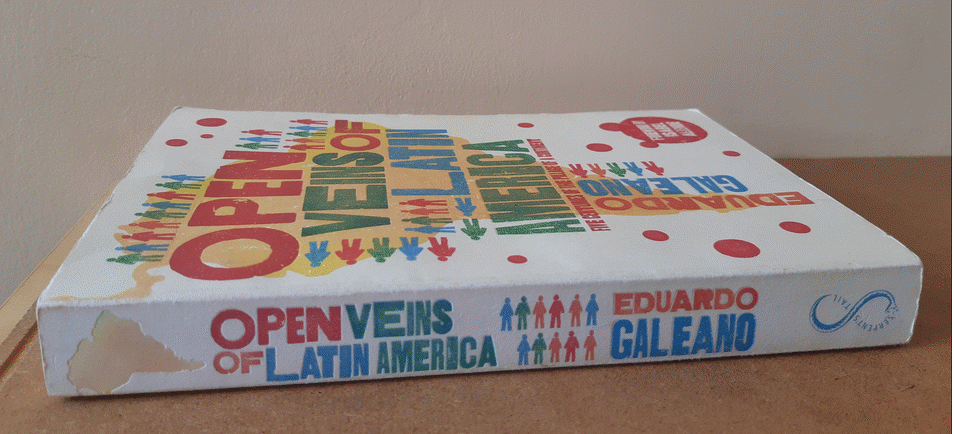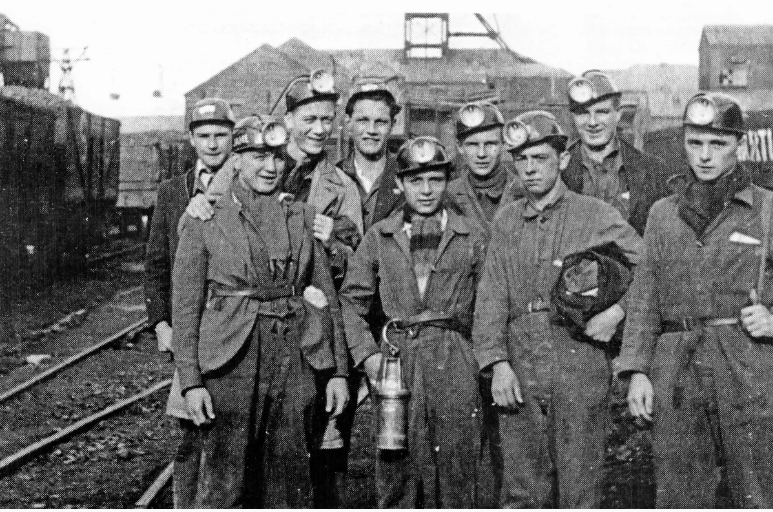Open Veins of Latin America – five centuries of the pillage of a continent by Eduardo Galeano was published just over 50 years ago. It is a masterful work analysing in detail the exploitation of the continent that started with the arrival of Christopher Columbus in the Bahamas in 1492. Galeano gives figures to show the pillage that took place. For example the first 170 years saw the shipping to Spain of 185,000 kilograms of gold and 16 million kilograms of silver. During this period the Indians of the Americas were reduced in population from 70 million to 3.5 million. By 1666 there were 80,000 slaves in the Bahamas working on 800 sugar plantations. One of our readers has written a review of the book which we are pleased to publish here.
**************
By Gavin O’Toole
It goes without saying that the most influential writers have often been those who have most eloquently captured the zeitgeist of societies undergoing rapid change. In Latin America this simple truth has arguably been exaggerated by the limited size of the writerly caste, a reflection of tiny elites sitting atop hierarchical societies comprising large numbers of the great unwashed.
This fact in itself can be explained in terms of class dynamics, but what is fascinating to the historical observer is how the content of intellectual output itself so often speaks directly to those underlying forces in any given period.
Freedom writings from Uruguay

There are plenty of examples of this but two of the best come from Uruguay: the landmark 1900 essay Ariel by José Enrique Rodó—an eloquent denunciation of nordomania (the attraction to US materialism), just as the locus of empire began to shift from London to Washington—and Eduardo Galeano’s Open Veins of Latin America.
While these works and their authors were distinctive, they shared a common underlying theme: a yearning for the continent to be free of an international system of domination, be it cultural (in the case of Rodó) or economic (in the case of Galeano).
However, there was also a critical difference: while the former influenced generations of Latin American thinkers but is rarely referenced outside the region, the latter entered a select, truly international pantheon and has, as a result, been the subject of both global leftwing adulation and rightwing opprobrium. Open Veins was banned by several Latin American military dictatorships, including that of Galeano’s own country—something this exceptionally gifted writer considered a badge of pride.
Worldwide significance of this book
This alone, of course, suggestsit should be high on everyone’s list of 100 books to read before you die—and the million-plus copies that have been printed confirm that it probably is. When in 2009 one of those copies was handed by the Venezuelan President, Hugo Chávez, to his US counterpart, Barack Obama, as a very loaded statement about the two competing ideologies dividing the Americas, it gained a political status rarely achieved by any work.
But 50 years after its publication there are other good reasons to reflect upon what Galeano was saying, not just in order to ask whether his underlying argument still holds true, but also to consider a more subtle but equally important Marxist principle.
A condemnation of the rape and pillage of a continent
Open Veins was, first and foremost, a work of political economy based on a sensitive and informed reading of history that put factual meat on the bones of “dependency theory”. It was a heartfelt, angry, eloquent and convincing condemnation of the rape and pillage of a continent by international capital mobilised by successive waves of imperialism: Spanish, British, and US. It was an argument that no one on the left could possibly disagree with.
Second, however, and largely overlooked, is the fact that Open Veins might plausibly be regarded as an experiment in Marxist consciousness-raising aiming to challenge one of the biggest obstacles to revolution: official history draped in a nationalist flag which falsely portrays Latin American countries as sovereign, independent states fulfilling autonomous destinies. Galeano was not an economist—at heart, he was a poet who loved writing about football—but a socialist man of letters deeply affected by the poverty endured by workers and peasants and enthused by the potential of the Cuban revolution. He was addressing the masses, not the elites. In his own words:
“This book was written to have a talk with people. A non-specialized writer wanted to tell a non-specialized public about certain facts that official history, history as told by conquerors, hides or lies about. The most heartening response came not from the book pages in the press but from real incidents in the streets… I know I can be accused of sacrilege in writing about political economy in the style of a novel about love or pirates.
“But I confess I get a pain from reading valuable works by certain sociologists, political experts, economists and historians who write in code. Hermetic language isn’t the invariable and inevitable price of profundity. In some cases it can simply conceal incapacity for communication raised to the category of intellectual virtue. I suspect that boredom can thus often serve to sanctify the established order, confirming that knowledge is a privilege of the elite.”
The complex, incessant class struggle
The fact that Galeano’s economic thesis was something of a revelation—even though dependency theory was well established in debate by 1971—adds to the sense that Open Veins is a good example of Gramsci’s philosophy of praxis: in short, Galeano was the archetypal counter-hegemonic “organic intellectual” calling into question the moral–cultural order of societies toppling like dominoes to US-backed military dictatorships under the tightening grip of Cold War paranoia. At the time of writing this book, ideology had become the principal battleground of dirty wars waged against workers and peasants under the mendacious banner of national salvation.
Indeed, every page of Open Veins provides evidence of the complex, incessant class struggles shaping Latin America’s turbulent and bloody economic, and hence political and social, development since the time of Conquest. By the 20th century these had given rise to uniquely unequal and exploited societies with one foot in Europe and one in what the great Peruvian socialist Haya de la Torre called Indoamerica. In this respect, Galeano’s narrative was a tireless effort to explain to the dispossessed the alliance of forces, domestic and international, that had excluded them from the continent’s potential.
In broad terms the political economy underlying his argument, and more broadly that of dependency theory, is not complex: because of Latin America’s peripheral status in world trade; its lack of capital and hence dependence for investment and technology on the industrialised, imperial centre that sets the rules of international trade; and the unholy but mutually beneficial alliance between its elites and the foreign, imperial interests intent on profiting from its resources; the region was doomed to dependence and geopolitical subordination. Domination by the US and Europe ensured its natural treasures were hungrily consumed elsewhere, preventing their reinvestment in the continent itself. It was, therefore, the developed world that was responsible for Latin America’s underdevelopment.
In this respect, Galeano was a product of his time: dependency theory had by the 1960s become a central focus of the Economic Commission for Latin America (and later the Caribbean) and, with the development of neo-Marxist approaches, something of an orthodoxy on the left. It is notable, for example, that the author consulted with the visionary German dependency theorist Andre Gunder Frank when writing the book. Galeano had also visited Cuba in 1964 where Che Guevara had explained to him that US fury with the revolution was not solely about the loss of sugar plantations—those could be replaced at home—but about loss of access to the island’s cheap nickel and manganese reserves.
The daily misery of workers and peasants
Yet throughout Open Veins, Galeano adds the essential layer of analysis required by workers and peasants in order for them to understand the more immediate cause of their daily misery. Shielded by the omnipotent forces of global capitalism, a class of imperial vassals comprising domestic political and military elites were betraying their nations’ interests while visiting medieval levels of brutality upon their co-nationals.
While dependency theory in general has many critics, even they will admit it retains huge explanatory power. Open Veins was a powerful consciousness-raising instrument in its day and had international resonance precisely because it drew attention to the fact that it was no coincidence Latin America found itself under the jackboot of a military caste trained and equipped by the imperial centre. Class mechanisms determined by the region’s peripheral status in a global system were clearly at work.
On the one hand, from the late 1950s international capitalism in the form of multinational corporations and banks hungry to export surplus capital and develop new markets encouraged a new phase of economic restructuring in Latin America’s most advanced economies to correct the exhaustion of earlier, but limited, industrialisation. This required the expansion of local production to meet consumption in high-income sectors (cars, electrical appliances etc.).
Government control over opposition forces

The Brazilian Army supported by the US carried out a coup in 1964.
Source Arquivo Público do Distrito Federal (Public Archive of the Federal District) – Agência Senado
The obvious problem facing governments under pressure from workers and peasants mobilised during that earlier industrialisation was that those sectors—namely trade unions and populist parties—were unlikely to support this policy shift. Therefore, in the febrile atmosphere following the Cuban revolution, these groups would have to be controlled to ensure they did not obstruct change.
Coalitions comprising the military, domestic and foreign capitalists, and technocrats, duly seized power from the early 1960s onwards and exercised a form of repressive military rule that was largely generic.
On the other hand, Cuba’s revolution had ensured that the ideological stakes had become almost impossibly high: such was the stranglehold imposed by dependency that equitable economic development in the periphery was considered by many on the left to be impossible without revolutionary change. The stage was therefore set for 20 years of bloody repression in which military regimes murdered tens of thousands of Latin American trade unionists, rural organisers, and leftwing activists.
Latin American states in the 1970s
Shortly after Galeano’s book, and by virtue of closer class analysis of their structure, these regimes would be given their very own name: “bureaucratic authoritarian”. It should be no surprise that they were cheered on and financed by Washington, London and other capitalist centres – that was the whole point, after all. To my mind, therefore, one of Galeano’s main achievements was to record for posterity our collective role in Latin America’s recurrent lapses into darkness, and how our wealth has been built upon its suffering. He writes:
“Our devices for mincing human flesh are part of an international machinery. The whole society is militarised, the state of exception is made permanent, and the repressive apparatus is endowed with hegemony by the turn of a screw in the centres of the imperial system. When crisis begins to throw its shadow, the pillage of poor countries must be intensified to guarantee full employment, public liberties, and high rates of development in the rich countries.
The sinister dialectic of victim–hangman relations: a structure of successive humiliations that starts in international markets and financial centres and ends in every citizen’s home.”
Latin America today
Which brings us to the present: that was then, this is now, and to what extent do such arguments still apply? What, if anything, can they tell us about today?
These are inevitably huge questions without simple or quick answers, but an observation often made about dependency theory is that we need to be careful about historical over-determinism. To suggest that Latin America has been transformed since 1971 would be to state the blindingly obvious—and a titanic understatement to boot.
It is not the place here to survey the epic transformations brought about by democratisation, economic integration, a new commodities boom, and the recurrent “pink tide” shifts to the left. While in some cases commodity-producing countries still face detrimental terms of trade, in other cases these have improved. The picture is further complicated by the rise of China as a market for Latin American raw materials and a source of investment—where, precisely, do we situate this new superpower in terms of centre–periphery relations?
Imperial interventions persist
Yet at the same time, “extractivism” is the new term of choice for the exploitative, polluting and corruption-inducing behaviour of foreign corporations in the natural resources sector. Debt dependency, political interference, and shameless imperial interventions clearly persist. For example, the Biden administration’s recent overtures to Venezuela in an effort to choke out Russia from oil markets and destroy relations between Caracas and Moscow demonstrate the breathtaking hypocrisy that continues to steer what Galeano calls the “imperium”.
Washington has spent much of the last 20 years openly trying to engineer regime change in its South American nemesis and has destroyed its living standards through economic warfare. Its illegal embargo of Cuba persists, 60 years on.
Today, Latin America is still depicted on the pages of the main capitalist cheerleaders like the Financial Times and Wall Street Journal as little more than a repository of raw materials for exclusive Euro-American use. Moreover, now Western governments play out imperial rivalries with newcomers like China hungrier still for those resources and increasingly replicating the techniques of their antecedents.
Latin American workers still at the sharp end
In short, Latin American workers both urban and rural continue to be at the sharp end of unregulated, frontier capitalism under the aegis of the imperial “centre” in hyper-violent societies where civil rights are under siege—Colombia, for example, is the world’s most dangerous place for trade unionists, while Mexico is the world’s most dangerous place for journalists.

The Broad Front is a left wing coalition that was the ruling party in Uruguay between 2005 and 2020
The consensus among leftwing economists is that technical aspects of dependency theory still apply, if on a case-by-case basis. Yet the harsh reality is that it is very hard for developing economies to break dependent relationships in the global system as it stands. Latin America’s mostly democratic governments have begun at least to address some of the policy challenges posed by dependency and have re-learned in the process the importance of a strong state. Yet state-building in the region is still a work in progress and governments are often divided and inconsistent, corrupt and incompetent—the victims (and perpetrators) of a long history of trauma.
I suspect that Galeano, were he with us today, would be the first to admit that the larger economies of Latin America, at least, are no longer completely disempowered, and able to play off the US against a resurgent Europe and an unstoppable China. He was, after all, a witness in his own country to the triumph of the leftwing Tabaré Vázquez, who in 2004 broke the political mould by ending the monopoly of the Colorado and Blanco parties, and whose centre-left government made real headway tackling poverty and unemployment.
The power of solidarity
In the concluding comments of Open Veins, Galeano reminds us of his original motive for writing the book and ends on a largely optimistic note by drawing attention to a proudly Latin American characteristic, the enduring power of solidarity in the face of repression:
“Numerous unanimous strikes occurred in Argentina through 1977, when fear of losing one’s life was as real as the risk of losing one’s job. A stroke of the pen can’t destroy the power of response of an organized working class with a long fighting tradition.”



